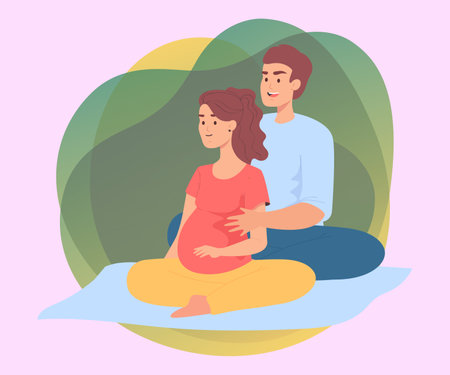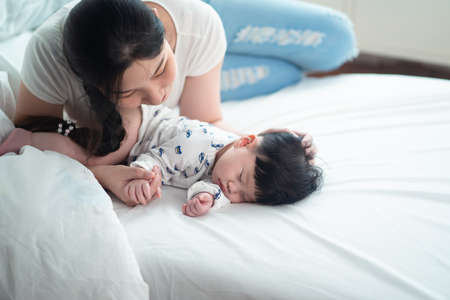1. Understanding the Role of the Health Visitor
Health visitors are a unique and vital part of the UK’s healthcare system, specialising in supporting families with children from birth to five years old. They are registered nurses or midwives who have undertaken additional training in public health, child development, and family support. Their primary goal is to ensure that every child gets the best possible start in life by working closely with parents and carers during those crucial early years.
Qualifications and Training
| Qualification | Description |
|---|---|
| Registered Nurse or Midwife | Must be qualified as a nurse or midwife before further training. |
| Specialist Community Public Health Nursing (SCPHN) – Health Visitor | A postgraduate qualification focusing on child development, safeguarding, and family health. |
The Essential Role of Health Visitors
- Providing expert advice on infant feeding, sleep routines, immunisations, and child safety at home.
- Monitoring your baby’s physical and emotional development through regular check-ups.
- Supporting parental mental health and wellbeing.
- Identifying early signs of developmental delays or health concerns.
- Offering guidance on accessing local services such as children’s centres, playgroups, and specialist health support.
Health visitors act as trusted partners for new parents across England, Scotland, Wales, and Northern Ireland. Their preventative approach not only addresses medical needs but also considers social factors that impact a child’s health. By building relationships with families from the outset, health visitors create a safe space for parents to seek reassurance and practical help throughout their child’s first year and beyond.
2. The First Visit: What Happens After Birth
The initial health visitor check-up is a key part of the support system for new parents in the UK. This first visit typically takes place within 10 to 14 days after your baby is born, usually at your home. The health visitor—an experienced nurse or midwife with specialist training in family and child health—will offer guidance, reassurance, and practical advice tailored to your baby’s needs.
When Does the First Visit Happen?
Once you are discharged from the hospital or midwifery care, your local health visiting team will contact you to arrange the appointment. Most families receive their first visit between days 10 and 14 post-birth, but this may vary slightly depending on local NHS Trusts and individual circumstances.
What to Expect During the Appointment
During this visit, the health visitor will:
- Check your babys weight, length, and head circumference
- Ask about feeding (breastfeeding or formula), sleep patterns, and nappy changes
- Discuss safe sleeping practices to reduce SIDS risk
- Offer advice on immunisations and future check-ups
- Answer questions about your own health and emotional wellbeing
- Provide information about local support groups and resources
| Area Assessed | What’s Involved |
|---|---|
| Growth & Development | Weighing baby; checking head & length; discussing milestones |
| Feeding & Nutrition | Guidance on breastfeeding/formula, winding, and hydration |
| Parental Wellbeing | Mental health check-in; signposting if extra support needed |
| Safety Advice | Cot safety, safe sleep, home safety tips |
| Immunisation Schedule | Information about upcoming vaccinations & appointments |
How to Prepare for Your First Health Visitor Appointment
- Have your ‘Red Book’ (Personal Child Health Record) handy for notes and tracking development.
- Write down any concerns or questions in advance so you don’t forget to ask.
- If possible, ensure both parents or main caregivers are present.
- Create a calm space where the health visitor can weigh and examine your baby safely.
- If you have pets, consider keeping them in another room during the visit.
This first check-up lays a solid foundation for your baby’s health journey and gives you practical tools for safe parenting in those crucial early weeks.

3. Scheduled Check-ups: Key Developmental Milestones
In the UK, health visitor check-ups are thoughtfully scheduled to ensure that your newborn is developing healthily and safely during their crucial first year. These appointments serve as both a safeguard for your babys well-being and an opportunity for you to discuss any concerns. Below is a breakdown of the regular check-ups from six weeks to one year, highlighting what each visit typically involves.
Age |
What the Assessment Covers |
|---|---|
6-8 Weeks |
|
3-4 Months |
|
6-8 Months |
|
9-12 Months |
|
At each appointment, health visitors also offer tailored advice about accident prevention in the home—such as safe sleep practices, choking hazards, and baby-proofing—as well as mental health support for parents. These check-ups are designed not only to monitor your child’s growth but also to create a safe space for families to ask questions and access community resources.
4. Topics Covered: Growth, Feeding, and Wellbeing
During each health visitor check-up from birth to one year, a range of essential topics are discussed to support both your baby’s development and your own wellbeing. Health visitors in the UK focus on providing safe, practical guidance tailored to your family’s needs, ensuring that you have the information required for your child’s healthy start.
Infant Growth and Weight Checks
Growth monitoring is a core aspect of every visit. Health visitors use calibrated scales to measure your baby’s weight, length, and head circumference. These measurements are plotted on growth charts found in your Red Book (Personal Child Health Record) to track progress against UK standards. Any concerns about rapid or slow growth will be addressed with evidence-based advice.
| Age | What is Checked | Purpose |
|---|---|---|
| Newborn (1-2 weeks) | Weight, general health | Establish baseline & feeding assessment |
| 6-8 weeks | Weight, length, head circumference | Monitor early growth trends |
| 3-4 months | Weight & development review | Check feeding progress, address concerns |
| 6-9 months | Weight & milestone check | Assess weaning & physical development |
| 12 months | Comprehensive growth review | Confirm healthy trajectory before toddlerhood |
Infant Feeding Support
Your health visitor will discuss how feeding is going—whether breast, formula, or mixed feeding—and provide up-to-date NHS guidance on issues like positioning, latch, frequency of feeds, and common challenges such as colic or reflux. As your baby grows, you’ll also receive advice on introducing solids (weaning), suitable first foods, and allergy prevention strategies. All advice is designed to be practical for busy UK families and to ensure infant safety.
Sleep Patterns and Safe Sleep Advice
Understanding newborn sleep can be confusing. Health visitors explain normal sleep patterns at different ages and offer practical tips on establishing routines that work for your household. They will reinforce key safe sleep recommendations to reduce the risk of sudden infant death syndrome (SIDS), such as placing babies on their backs for every sleep and maintaining a smoke-free environment.
Safe Sleep Checklist:
- Always place baby on their back to sleep.
- Avoid loose bedding or pillows in the cot.
- Keep the cot in your room for at least six months.
- Avoid overheating—use appropriate clothing and room temperature (16–20°C).
- No smoking in the home or around the baby.
Immunisations Schedule Overview
Your health visitor will outline the routine childhood immunisation schedule recommended by the NHS. They’ll answer questions about vaccine safety, side effects, and timing. This ensures you can confidently make appointments with your GP surgery when each vaccine is due.
| Age | Main Vaccines Given (NHS) |
|---|---|
| 8 weeks | DTP/IPV/Hib/HepB, Rotavirus, MenB, PCV |
| 12 weeks | DTP/IPV/Hib/HepB (2nd dose), Rotavirus (2nd dose) |
| 16 weeks | DTP/IPV/Hib/HepB (3rd dose), MenB (2nd dose), PCV (2nd dose) |
| 12 months+ | Meningitis C/ Hib booster, MMR, MenB booster, PCV booster |
Parental Wellbeing and Support Networks
Your emotional health matters too. Health visitors routinely ask about parental mental wellbeing and offer confidential support if you’re struggling with low mood, anxiety, or isolation. They can signpost you to local parenting groups, online resources such as NHS Start4Life, or specialist services where necessary—all with a non-judgemental approach tailored to life in the UK today.
5. Safety Advice and Practical Support for New Parents
One of the essential roles of health visitors during check-ups is to provide practical, evidence-based guidance on keeping your newborn safe and secure at home. These conversations are tailored to your family’s living environment and your baby’s stage of development, ensuring you receive relevant and up-to-date advice.
Home Safety and Accident Prevention
Health visitors will help you identify potential hazards in your home and offer strategies to prevent common accidents. This practical support covers everything from safe storage of cleaning products to stair gate installation and electrical socket covers. Below is a summary of key safety tips:
| Area | Common Hazards | Prevention Tips |
|---|---|---|
| Living Room | Corners, loose wires | Use corner guards, tidy cables |
| Kitchen | Hot surfaces, sharp objects | Keep knives out of reach, use hob guards |
| Bathroom | Drowning risk, slippery floors | Never leave baby unattended, use non-slip mats |
Safe Sleeping Practices
Your health visitor will discuss the latest NHS guidelines on safe sleeping to reduce the risk of Sudden Infant Death Syndrome (SIDS). Key recommendations include:
- Always place your baby on their back to sleep, in a separate cot or Moses basket in the same room as you for at least the first six months.
- Use a firm, flat mattress with a fitted sheet—avoid pillows, quilts, or soft toys in the sleeping area.
- Keep your baby smoke-free during pregnancy and after birth.
Accessing Community Resources
If you need extra support—whether it’s breastfeeding advice, mental health resources, or parent-and-baby groups—health visitors can connect you with local services. They maintain up-to-date knowledge about what’s available in your area, helping you build a supportive network within your community.
Examples of Local Support Services
- Children’s centres offering playgroups and parenting courses
- BABY clinics for weighing and developmental advice
- Breastfeeding cafés and peer support groups
Your Role as a Parent
You are encouraged to raise any concerns during your health visitor appointments. No question is too small when it comes to your baby’s safety. Health visitors are there not only to give practical advice but also to empower you as a confident, well-informed parent throughout your child’s first year.
6. What to Do if You Have Concerns
Its natural for parents and carers to worry about their newborns health or development at times, especially in the first year when everything is new. Health visitor check-ups are designed to offer reassurance and support, but if you notice something that concerns you between visits, its important to act promptly. Here’s a practical guide on what steps to take and where to find additional help within the UK.
Raising Your Concerns with Your Health Visitor
Your health visitor is your first point of contact for any worries about your baby’s growth, feeding, sleeping patterns, behaviour, or development milestones. Dont wait until your next scheduled visit; most health visiting teams are happy to arrange extra appointments or phone consultations if needed. Bring a list of specific concerns and any changes youve noticed, as this will help your health visitor assess the situation more effectively.
When to Seek Immediate Help
| Situation | What To Do |
|---|---|
| Your baby has difficulty breathing, persistent vomiting, high fever, seizures, or becomes unresponsive | Call 999 for emergency services or go straight to A&E |
| You’re unsure if it’s an emergency but feel worried | Call NHS 111 for advice 24/7 |
| Mild but ongoing health or developmental concerns | Contact your GP or health visitor for further assessment |
Other Sources of Support in the UK
If you need further guidance or specialist support, the following resources may be helpful:
- NHS Start4Life: Trusted advice on infant health and development (nhs.uk/start4life)
- Family Hubs and Childrens Centres: Local centres offering parenting advice, playgroups, and drop-in sessions with professionals. Find your nearest centre via your local council website.
- GP Practice: Book an appointment for medical concerns outside routine health visitor checks.
- NHS 111: Free helpline for urgent health questions that aren’t emergencies.
- MIND or YoungMinds: For parental mental health support during early years (mind.org.uk, youngminds.org.uk)
- Local Support Groups: Many communities offer parent-and-baby groups for social support and shared experiences—your health visitor can signpost you to these.
Key Advice for Parents and Carers
If in doubt, always reach out—no concern is too small when it comes to your babys wellbeing. Early intervention often leads to better outcomes. Keep a record of symptoms or behaviours you’re worried about; photos or videos can also be useful when discussing issues with professionals. Remember, seeking help shows strength and ensures your child gets the best possible start in life.


